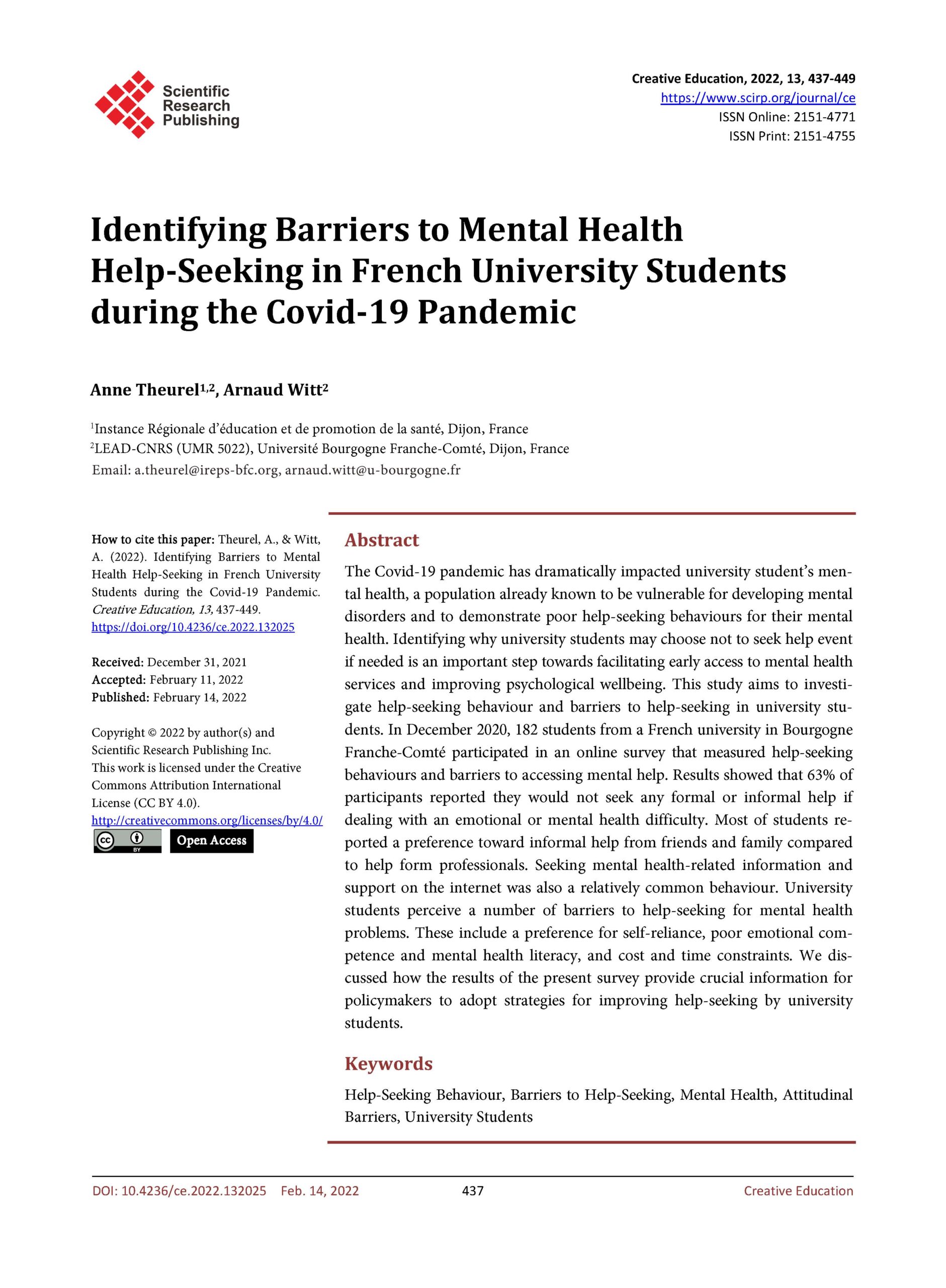The Covid-19 pandemic has dramatically impacted university student’s mental health, a population already known to be vulnerable for developing mental disorders and to demonstrate poor help-seeking behaviours for their mental health. Identifying why university students may choose not to seek help event if needed is an important step towards facilitating early access to mental health services and improving psychological wellbeing. This study aims to investigate help-seeking behaviour and barriers to help-seeking in university students. In December 2020, 182 students from a French university in Bourgogne Franche-Comté participated in an online survey that measured help-seeking behaviours and barriers to accessing mental help. Results showed that 63% of participants reported they would not seek any formal or informal help if dealing with an emotional or mental health difficulty. Most of students reported a preference toward informal help from friends and family compared to help form professionals. Seeking mental health-related information and support on the internet was also a relatively common behaviour. University students perceive a number of barriers to help-seeking for mental health problems. These include a preference for self-reliance, poor emotional competence and mental health literacy, and cost and time constraints. We discussed how the results of the present survey provide crucial information for policymakers to adopt strategies for improving help-seeking by university students.
Identifying barriers to mental health help-seeking in French university students during the Covid-19 pandemic
